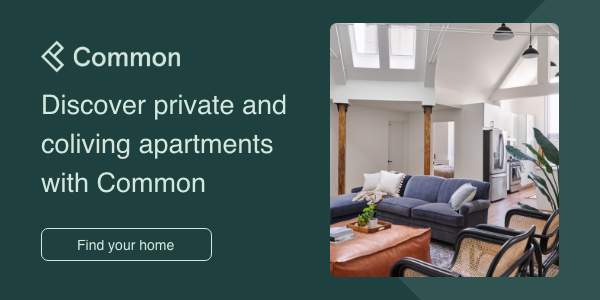Are you moving to a new city for a job, school, or perhaps just a change of scenery?
Regardless of the reason, moving can be a thrilling adventure, but it comes with a big decision: where to live. Finding the perfect apartment means balancing what you want with what you need—and that’s no small feat. The stars need to align in terms of location, amenities, space, and budget.
And let’s not underestimate the importance of timing.
Start your search too soon, and you might fall for apartments that won’t be on the market by the time you’re ready to move. Drag your feet, and you’ll be scraping the bottom of the rental barrel, possibly forced to sign a lease on a place that doesn’t check your boxes.
Wondering when to start looking for apartments?
This guide is for you.
When Should I Start Looking for an Apartment?
Timing is a linchpin in the apartment hunting game, especially in hot rental markets where vacancies are filled in a flash. You need to find that Goldilocks zone—not too early, not too late, but just right.
90 Days Out: The Preparatory Phase
At around 90 days before your desired month or move-in date, you should begin a generalized search of the city. This is your initial opportunity to study the lay of the land and narrow down the neighborhoods that match your needs.
If you plan on moving for school or work, proximity to your campus or office will be a major priority. But it’s not the only factor you’ll need to consider. Others may include:
- Cost of living
- Transit and walkability
- Safety
- School districts
- Nightlife
- Dining
- Outdoor recreation
- Retail amenities
- Community vibe or culture
Don’t just rely on apartment listings for this information. Scour online forums, read local blogs, and visit city-specific subreddits to get the real scoop from residents.
Also, if you have the luxury of visiting the city before your move, take some time to explore these neighborhoods in person. First-hand experience can be invaluable.
60 Days Out: The Real Hunt Begins
How far out should you look for the perfect apartment?
In most places, two months is a good rule of thumb to start the apartment hunt.
By 60 days out, you should have narrowed down the list of your most desirable destinations. Once you’ve done that, you can shift gears from casual browsing to purposeful searching.
Naturally, most of this will occur online. So, if you’re unable to visit a promising new apartment in person, leverage technology to your advantage. Usually, a modern apartment complex landlord or property manager offers a virtual apartment tour, 360-degree photos, and interactive floor plans.
You can also often find resident reviews or YouTube walk-throughs that may be able to provide additional insights from an unbiased observer.
30 Days Out: Time to Lock Down a Spot
At the 30-day mark, you’re entering the home stretch. Ideally, you should be finalizing your apartment rental choice by now. If you haven’t already secured a place, aim to be at a place where you’re in the final stages of negotiations or awaiting approvals on your application.
As you approach this process, keep the following best practices in mind:
- Carefully review the lease agreement – To protect yourself, it’s crucial to read your lease agreement thoroughly before signing on the dotted line so you can avoid apartment scams. Make sure you understand the terms, including the length of the lease, the refund policy on your security deposit, maintenance protocols, pet-related rules, and so on. If something’s unclear, ask questions. Once you’ve read and understood the contract, go ahead and lock it down.
- Make sure your finances are in order – Most landlords will require the first month’s rent and a security deposit upfront. Some might even require last month’s rent. Budget for these expenses so you’re not caught off guard.
- Have your documentation lined up – Your landlord will likely run both credit and background checks. To ensure that this process runs smoothly, you’ll need to prepare all the relevant paperwork and documentation, including:
- Apartment application
- Proof of employment and income
- Identification
- Rental history and contacts
- Contact details
- Prepare moving logistics – A long-distance move can be a lengthy and costly process. Be sure to begin preparations ahead of time so that your belongings will arrive by the time you become a tenant.
Find Your Next Apartment with Common
Finding a new place to live can be overwhelming, even if you adhere to our 90, 60, and 30-day model. There’s always the concern that you won’t find an apartment that ticks all your boxes.
But with Common, the journey from apartment hunting to moving in becomes effortless and stress-free.
Imagine walking into a fully furnished high-end kitchen and a private bedroom equipped with all your essentials. Say goodbye to the hassles of hiring cleaning and property services, or lugging your laundry off-site—Common takes care of it all.
And the perks don’t stop there. Our modern apartments offer free high-speed WiFi, basic household staples, state-of-the-art appliances, and more. Want to switch locations? Common even facilitates property-to-property transfers.
Put simply, Common takes the stress and worry out of finding your new home. Just pick your next city, and we’ll handle the rest.
Sources:
- CNBC. 5 mistakes young people make when renting an apartment — and how to avoid them. https://www.cnbc.com/2018/05/14/mistakes-millennials-make-when-renting-an-apartment.html


